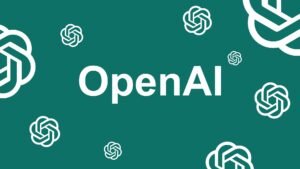
In today’s rapidly evolving digital landscape, where consumers are bombarded with an overwhelming amount of information and choices, personalized marketing has become the holy grail for businesses striving to stand out and engage their target audiences.
Personalization means tailoring products or services to each customer’s specific needs and preferences. It’s a powerful way to boost customer satisfaction, loyalty, retention, and increase conversion rates and revenue. Yet, personalization can be challenging, especially on a large scale. It demands collecting and analyzing vast amounts of data and delivering the right content, offers, or recommendations to customers at the right time and through the right channel.
This is where Artificial Intelligence (AI) steps into the spotlight as the perfect solution for crafting personalized marketing campaigns that not only resonate with consumers but also drive business success. In this digital age, AI empowers marketers with unprecedented capabilities to analyze data, segment audiences, and deliver tailored messages, ultimately leading to improved customer experiences and enhanced ROI.
AI is the perfect solution for personalizing marketing campaigns. It helps marketers create customized, relevant experiences for customers, leading to higher customer satisfaction, loyalty, retention, increased conversion rates, and revenue. AI also allows marketers to save time, money, and resources and scale their personalization efforts across channels and segments.
AI, which involves machines performing tasks that usually require human intelligence, like understanding natural language, recognizing images, making decisions, and learning from data, can aid marketers in personalizing their campaigns in various ways, such as:
- Segmenting customers based on their behavior, preferences, interests, and needs, and creating dynamic, relevant customer profiles.
- Generating personalized content like headlines, images, videos, or emails that match the customer’s profile and context, optimizing customer engagement and response.
- Recommending products, services, or offers most likely to appeal to the customer, based on their past purchases, browsing history, and other factors, using reinforcement learning to improve recommendations continuously.
- Predicting customer behavior, such as churn, retention, lifetime value, or purchase intent, and tailoring the marketing strategy accordingly.
- Optimizing the marketing mix, including price, promotion, placement, and timing for each customer, testing variations to find the optimal one.
- Automating the marketing workflow, like creating, launching, and managing campaigns, using feedback loops to measure and improve performance and ROI.
The Data Deluge and the Need for Personalization
In today’s hyperconnected world, data is the lifeblood of marketing. The digital landscape is awash with an abundance of information generated by consumers’ online interactions, purchases, and preferences. According to Forbes, approximately 2.5 quintillion bytes of data are created daily. For marketers, the challenge lies in sifting through this colossal trove of data to identify relevant insights and trends that can drive effective marketing strategies.
Personalization is the answer to this challenge. By crafting individualized messages and experiences, businesses can cut through the noise and connect with their target audience on a more meaningful level. However, achieving personalization at scale and in real-time is a daunting task without the assistance of AI.
AI’s Analytical Prowess: Making Sense of Big Data
The cornerstone of effective personalization is data analysis. AI has proven to be a game-changer in this regard. Machine learning algorithms, a subset of AI, can process and analyze vast datasets at lightning speed. They are capable of identifying patterns and insights that humans might overlook or require an impractical amount of time to discover.
AI can categorize consumers into distinct segments based on their behavior, demographics, and preferences. These segments can then be leveraged to tailor marketing campaigns to each group’s unique needs. Whether it’s e-commerce, healthcare, or any other industry, AI can provide the analytical power to sift through mountains of data and extract actionable insights that guide marketing strategies.
The Power of Predictive Analytics
One of AI’s most compelling capabilities for personalization is predictive analytics. By analyzing historical data and consumer behavior, AI can make informed predictions about future actions and preferences. For example, AI can anticipate a customer’s next purchase, their preferred content, or the optimal time to engage with them.
Predictive analytics empowers businesses to take a proactive approach to personalization. Rather than reacting to customer actions, companies can use AI to anticipate their needs and provide personalized recommendations, offers, and content before customers even realize they want them. This not only enhances the customer experience but also drives higher conversion rates and customer retention.
Real-Time Personalization: The Competitive Edge
In today’s fast-paced digital world, timing is everything. Consumers expect relevant and timely interactions with brands. AI can deliver real-time personalization, ensuring that messages and offers are tailored to consumers’ current context and behavior.
For example, when a customer browses an e-commerce website, AI can analyze their real-time behavior, such as the products they view, the pages they visit, and the items they add to their cart. With this information, AI can instantly adjust the content and recommendations on the website to match the customer’s preferences, increasing the likelihood of a purchase. This dynamic personalization can make a significant difference in conversion rates and revenue.
Examples of AI-powered personalization in action include:
- Netflix, which uses AI to create personalized recommendations, thumbnails, and previews for each user based on their viewing history and preferences.
- Spotify, which employs AI to create personalized playlists like Discover Weekly and Release Radar for each user, based on their listening history and preferences.
- Amazon, which uses AI to offer personalized product recommendations, like “Customers who bought this item also bought” and “Frequently bought together,” based on purchase history and browsing behavior.
- Starbucks, which utilizes AI to craft personalized offers, such as free drinks, discounts, or rewards, for each user, based on their purchase history and preferences.
The Seamless Customer Journey
The customer journey is no longer a linear path from awareness to conversion. It’s a complex web of touchpoints and interactions across various channels and devices. To provide a seamless and consistent customer experience, businesses need to connect the dots and ensure that every interaction is personalized.
AI excels at orchestrating this omnichannel personalization. It can analyze data from multiple touchpoints, such as a website visit, mobile app usage, social media interactions, and email engagement, to create a unified customer profile. This profile allows businesses to deliver a consistent and personalized experience across all channels, reinforcing the brand’s image and strengthening customer loyalty.
Embracing AI for Hyper-Personalization
Hyper-personalization takes personalization to the next level. It involves crafting individualized experiences down to the smallest details, catering to each customer’s unique preferences and needs. AI is a natural fit for achieving hyper-personalization, as it can process and act on vast amounts of data with exceptional granularity.
For example, in the fashion industry, AI can analyze a customer’s style preferences, size, and past purchases to recommend outfits that perfectly match their taste and fit. In healthcare, AI can personalize treatment plans based on a patient’s medical history and genetic makeup. These are just a few examples of how AI can enable hyper-personalization, fostering a deeper connection between brands and customers.
AI-Driven Content Personalization
Content is the cornerstone of marketing. Whether it’s blog posts, videos, or email campaigns, the content needs to resonate with the target audience. AI can enhance content personalization by tailoring the messaging, format, and timing to each individual.
For instance, AI can analyze a customer’s browsing history and interests to recommend relevant articles or videos. It can also optimize email subject lines and content to increase open and click-through rates. By delivering content that speaks to each individual’s interests and needs, AI can boost engagement and drive conversions.
ROI and the Bottom Line
In the world of business, ROI is the ultimate metric. When it comes to marketing, personalized campaigns driven by AI consistently deliver higher returns. According to a report by McKinsey, personalization can lead to a sales increase of 10% or more.
AI not only enhances customer engagement and conversion rates but also optimizes marketing spending. By targeting the right audience with the right message, businesses can maximize the efficiency of their marketing budgets. This, in turn, directly impacts the bottom line, making AI-driven personalization a strategic investment.
AI and Privacy Concerns
While AI-driven personalization offers immense benefits, it also raises concerns about data privacy. As AI relies on data analysis to craft personalized experiences, businesses must be vigilant in protecting customer information and adhering to data privacy regulations, such as GDPR and CCPA.
It’s crucial for businesses to be transparent about their data collection and usage practices. Additionally, they should provide customers with the option to control their data and privacy settings. Building trust and ensuring data security are paramount in the age of AI-driven personalization.
The Human Touch in AI-Powered Personalization
AI may be the driving force behind personalization, but the human touch remains essential. While AI can analyze data, predict preferences, and automate certain processes, it’s human marketers who bring creativity and empathy to the table. A successful personalization strategy strikes a balance between AI-driven insights and the human element that understands customer emotions and aspirations.
Human marketers can use AI as a tool to inform their decisions and create compelling narratives that resonate with consumers. It’s this combination of AI and human expertise that delivers truly exceptional personalized experiences.
Here are some tips for using AI to personalize marketing campaigns:
- Define your personalization goals and metrics, aligning them with your business objectives and customer needs.
- Collect and integrate data from multiple sources, like CRM, web analytics, social media, surveys, ensuring that the data is accurate, complete, and up-to-date.
- Choose the right AI tools and platforms that suit your personalization needs and capabilities, offering features such as data management, content generation, recommendation engines, predictive analytics, optimization, and automation.
- Test and experiment with different personalization strategies and tactics, using testing methods to measure and compare results.
- Monitor and evaluate the performance and impact of your AI-powered personalization, using feedback and insights to refine your campaigns.
In the era of data abundance and digital complexity, AI stands as the perfect solution for personalizing marketing campaigns. With its analytical prowess, predictive capabilities, real-time responsiveness, and the potential for hyper-personalization, AI empowers businesses to craft compelling, tailored experiences that drive customer engagement, loyalty, and ROI.
As consumers continue to demand more relevant and meaningful interactions with brands, those who harness the power of AI-driven personalization will gain a competitive edge. However, it’s crucial to remember that while AI can enhance personalization, the human touch remains irreplaceable in creating emotionally resonant marketing campaigns. By embracing AI as a strategic ally, businesses can navigate the evolving marketing landscape and deliver personalized experiences that leave a lasting impression.











Welcome to our comments section!
We value your feedback and encourage you to share your thoughts in the comment section. Let’s keep the conversation meaningful, respectful, and inclusive.
For the best user experience, commenting is closed after an article has been posted for seven days. Please ensure your comments align with our Community Guidelines.